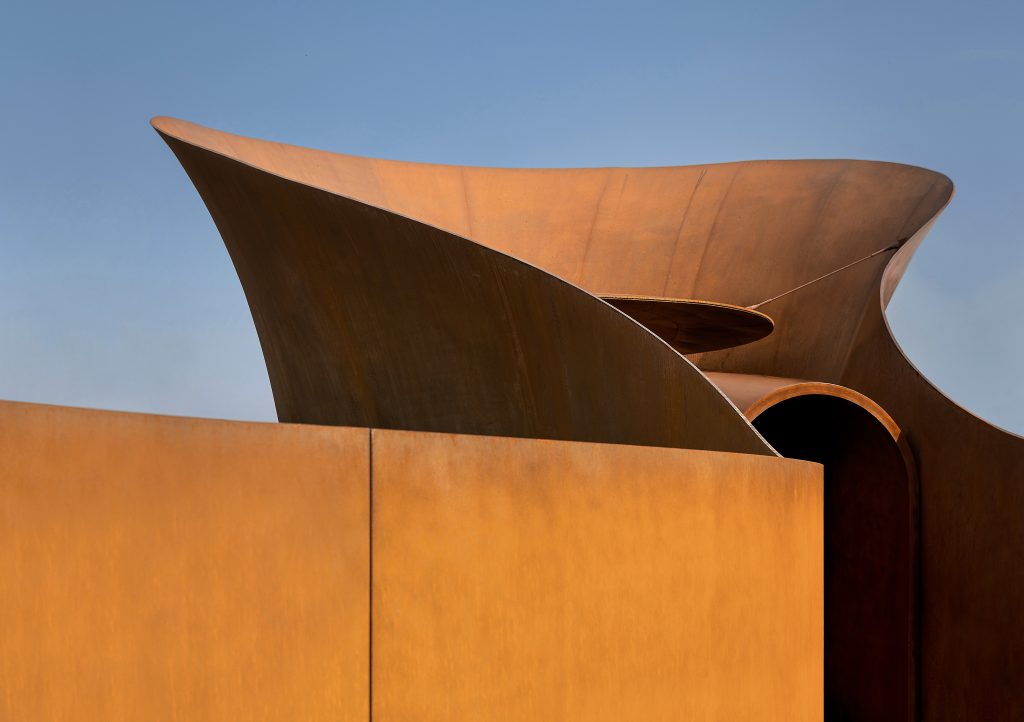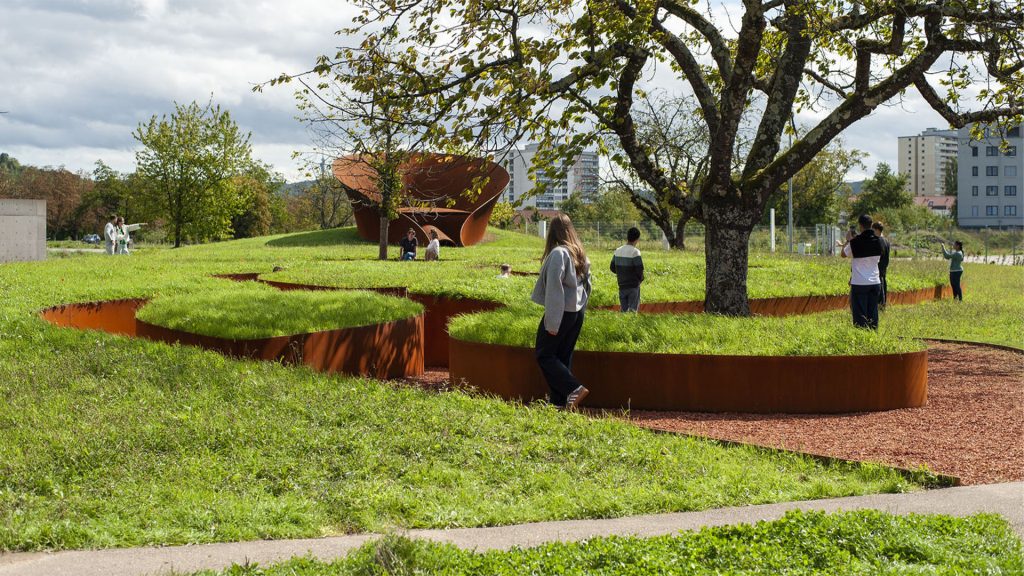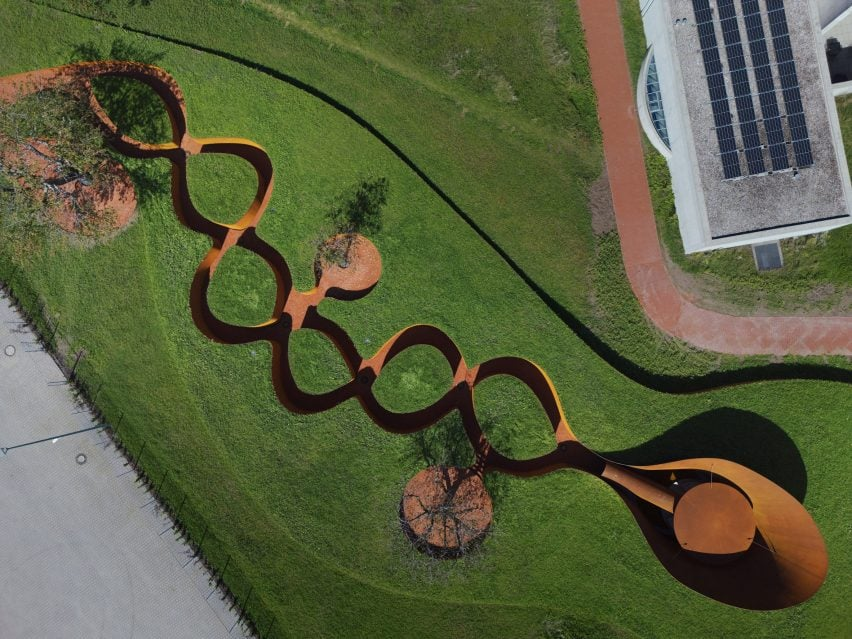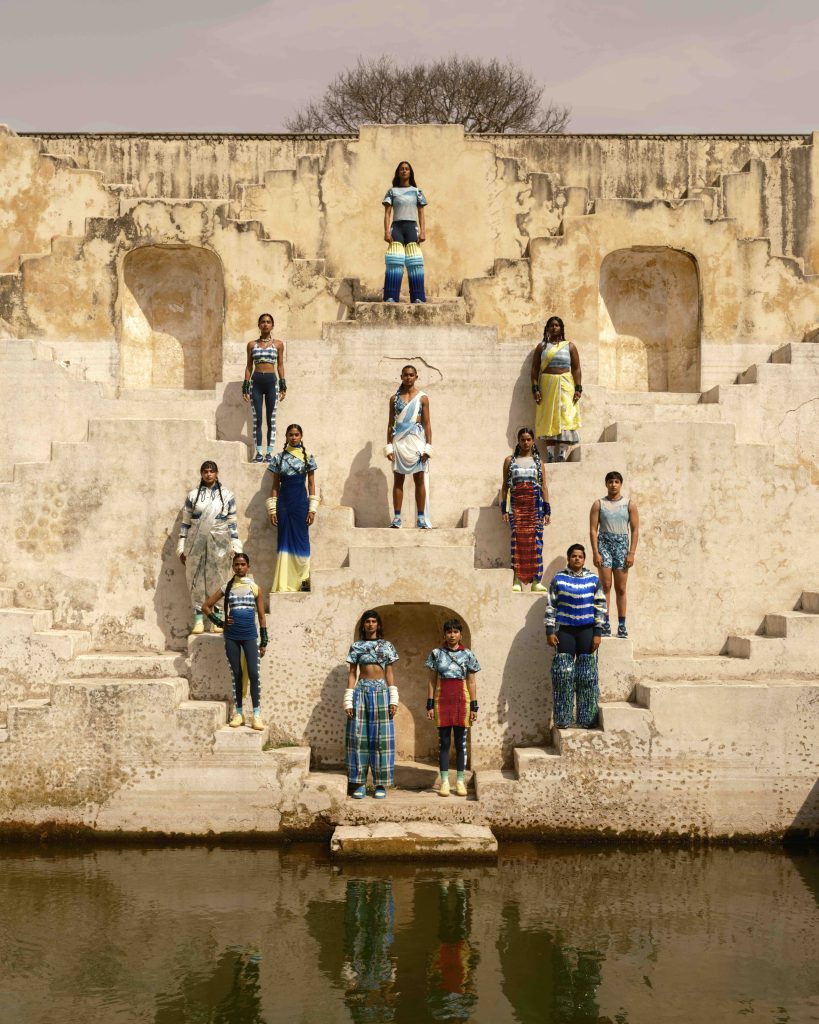The Doshi Retreat, the last architectural work of the late Pritzker Prize-winning architect Dr. Balkrishna Vithaldas Doshi, has officially opened to the public at the renowned Vitra Campus in Weil am Rhein, Germany. Inaugurated on October 25, 2025, this contemplative space marks a historic milestone as Doshi’s first and only project to be built outside India, realized after his passing in January 2023.
The Doshi Retreat was designed by Balkrishna Doshi with Khushnu Panthaki Hoof & Sönke Hoof. It is the first building by architects in India on the Vitra Campus and the last project that Doshi worked on before his passing. The project originated from a 2020 conversation between Doshi and Rolf Fehlbaum, Chairman Emeritus of Vitra, who had been deeply moved by a visit to a small shrine at the Modhera Sun Temple in Gujarat, India. Fehlbaum approached Doshi with the idea of creating a similar contemplative space for the Vitra Campus, and the architect enthusiastically accepted the challenge.
Born from a Dream of Two Interweaving Cobras
The architectural concept emerged from one of Doshi’s vivid dreams during the pandemic lockdown of 2020. “This architecture was born from a dream Doshi had of two interweaving cobras,” explains Khushnu Panthaki Hoof. The late architect transformed this subconscious vision into sketches filled with notes, mantras, and words like “stillness,” “contemplation,” “memory,” “ritual,” and “movement”. These became the foundation for a project that Doshi, Khushnu, and Sönke developed together over months of homebound collaboration.
The Doshi Retreat unfolds as a snake-like, winding path that descends below ground level, guiding visitors through a sensory journey of discovery.
Sound as a Catalyst for Transformation
Central to the experience is the role of sacred sound. A subtle audio system embedded within concave recesses in the ground diffuses a sequence of gong and ceramic flute tones along the pathway. These gentle sounds resonate off the metal walls and interact with the visitor’s body in motion, creating what Khushnu describes as an erasure of boundaries: “It is sound—resonating through the visitor’s body—that erases the boundary between self and structure”.

The journey culminates in a circular contemplation chamber featuring a rainwater basin encircling its base, two wide semicircular stone benches, and a central gong. A hand-hammered brass mandala crafted in India adorns the partially open ceiling, casting refracted light into the space while allowing air and precipitation to enter. The design draws upon the spiritual philosophy of Kundalini—a Sanskrit term meaning “coiled” or “spiralled”—referring to latent energy at the base of the spine whose awakening through the chakras is considered essential to spiritual transformation in yogic and tantric traditions.
A Legacy Completed Posthumously
Doshi passed away in January 2023 before construction was completed, leaving Khushnu and Sönke to realize his vision. Reflecting on completing the project without their beloved mentor, Khushnu shared: “Doshi used to say that ‘silence is the most generous form of guidance,’ and when he left, his absence was that silence for us”.
The Doshi Retreat joins an exceptional collection of architecture at the Vitra Campus, which already houses iconic buildings by Frank Gehry, Zaha Hadid, Tadao Ando, and Herzog & de Meuron. Situated near Ando’s Conference Pavilion, the retreat was carefully positioned to weave between three mature trees and the site’s sloping terrain, creating what Khushnu describes as a “river delta-like” path toward the main pavilion.
Fehlbaum emphasized the project’s contemporary relevance: “The world has shifted. Confrontation, polarisation, war and authoritarianism have become increasingly prevalent. A space reflecting Doshi’s values is more crucial than ever. He built bridges between East and West, between science and spirituality, tradition and modernity, and his world was one of humility, generosity, humour and reconciliation—values that are very, very much needed today”.

Balkrishna Doshi: India’s First Pritzker Laureate
Balkrishna Doshi, who received the Pritzker Architecture Prize in 2018 as the first Indian architect to be so honored, had a distinguished career spanning over 70 years. Born in Pune in 1927, he apprenticed under Le Corbusier in Paris and later collaborated with Louis Kahn on projects in India. His philosophy emphasized architecture as “an extension of life, philosophy and dreams,” creating spaces that celebrated the fusion of lifestyle and architecture.
Doshi’s notable works include the Aranya Low-Cost Housing in Indore (which houses approximately 80,000 residents), the Indian Institute of Management in Bangalore, his own studio Sangath in Ahmedabad, and the Institute of Indology. His humanist approach addressed the needs of every socio-economic class, blending modernist principles with Indian cultural traditions, sustainable practices, and deep respect for context.
Contributor





